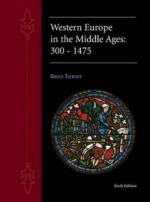|
This section contains 1,795 words (approx. 6 pages at 300 words per page) |

|
Roots in Boethius. Through his commentaries (written circa 504-509) on Porphyry's Isagoge, Boethius introduced a philosophical concern that became a major topic of discussion in the eleventh and twelfth centuries and reemerged in the late thirteenth and early fourteenth centuries: the problem of universals, which has its roots in a fundamental disagreement in metaphysics between Plato and Aristotle. Plato believed that the essence of a thing—that which makes the thing the kind of a thing it is—has a separate and more real existence than the thing of which it is the essence. He called these essences eidos, a Greek word that means "kind" or "type" but in relation to Plato's philosophy is usually translated as "Form" or "Idea." For example, all dogs are dogs because they share or "participate in" the Form of Dog. The...
|
This section contains 1,795 words (approx. 6 pages at 300 words per page) |

|




